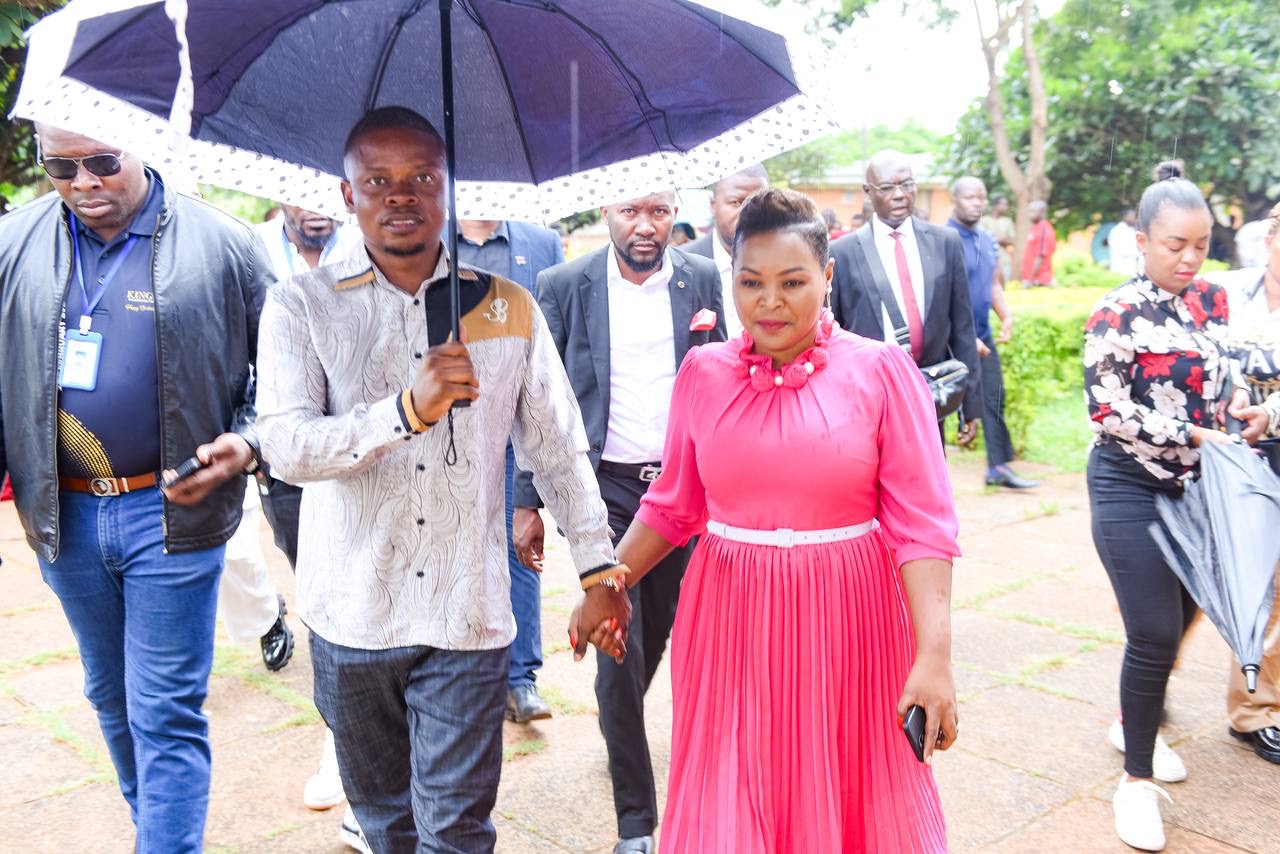A Call for Judicial Integrity in the Case of Prophet Shepherd Bushiri
The justice system is the bedrock of any functioning democracy. It guarantees that all individuals, regardless of status, are subject to the same legal standards. However, history has shown that this ideal is often undermined when political agendas, economic influence, and personal connections infiltrate judicial proceedings.

The South African Context: A Cautionary Tale
South Africa provides a notable example of judicial inconsistency, particularly visible in the handling of the infamous Gupta family case. The Gupta family, known for its close ties to former President Jacob Zuma, is widely accused of masterminding state capture, manipulating government policies, contracts, and appointments to enrich themselves. Despite the gravity and volume of evidence against them, the Guptas evaded South African authorities, raising serious questions about the robustness and impartiality of the country’s justice system. Their escape highlighted what many perceive as selective justice and a judiciary vulnerable to external influences.
Drawing Parallels: The Case of Prophet Shepherd Bushiri
A similar dilemma now arises in the extradition case involving Prophet Shepherd Bushiri, a prominent Malawian religious leader facing allegations of financial crimes in South Africa. The case has sparked debate on judicial independence, fairness, and sovereignty. Considering South Africa’s questionable record in dealing with politically sensitive corruption cases—such as its failure to prosecute the Guptas before their escape—there is justified apprehension over whether Prophet Bushiri would be granted a fair and impartial trial if extradited.
The Duty of Malawi’s Judiciary
The current situation places an immense responsibility on Malawian judges. They must ensure that their decisions are guided by legal principles and procedural integrity, not by external pressure or political maneuvering. The weaknesses exposed in the South African justice system demand caution. Malawi’s courts must ensure that the extradition process is transparent, fair, and immune to undue influence.
It is essential that justice is not only done but seen to be done. The failure of South Africa’s judiciary to adequately handle high-profile corruption cases, like that of the Guptas, must serve as a warning. Extradition should only be granted if Malawi’s judiciary can be fully assured that Prophet Bushiri will receive a fair trial free from political interference.
This is an opportunity for Malawi’s courts to assert their independence and show the world that their legal system operates with integrity, adhering to the rule of law rather than political expediency.
Legal Analysis of the South Africa-Malawi Extradition Case
Like a carefully played game of chess, extradition proceedings require strict adherence to rules and legal standards. The ongoing extradition matter between the State of South Africa and Prophet Bushiri has reached a decisive stage, with Malawi’s courts issuing rulings that critically shape the trajectory of the case.
Key Issues Undermining South Africa’s Extradition Request
- Non-Compliance with Malawian Court Directives
Three years ago, a Malawian court ordered South African authorities to produce physical witnesses related to the rape allegations against Prophet Bushiri within Malawi. This requirement was crucial for substantiating the extradition request.
However, the South African authorities failed to meet this directive. In its ruling, the court emphasized that the plaintiffs (alleged victims) remained unidentified, and their names were absent from the official case file submitted to Malawi. This omission undermined the credibility of the charges under Malawian law.
- Sufficiency of Charges Under Malawian Extradition Law
Malawi’s courts ruled that many of the charges presented were “insufficient.” This term, within the context of extradition law, refers to the legal standard required under Malawian—not South African—jurisprudence.
Even if the alleged crimes are prosecutable in South Africa, extradition can only proceed if the offenses meet Malawian legal thresholds. Due to improper filing and procedural lapses, 10 of the charges were deemed insufficient.
- Jurisdictional and Legal Frameworks
Extradition between South Africa and Malawi is governed by bilateral agreements and Malawi’s domestic laws. If an alleged offense in South Africa is not recognized as an extraditable offense under Malawian law, the extradition cannot proceed.
The dismissal of the bulk of the charges reflects Malawi’s adherence to its own legal framework rather than the expectations or demands of South African authorities.
Implications and Future Outlook
Following the dismissal of 10 charges, only three remain under review by Malawi’s High Court of Appeal. However, the procedural missteps by South African authorities—particularly the failure to comply with witness-related directives—substantially weaken their case on appeal.
Given the complexities involved and the procedural gaps in South Africa’s approach, the appeals process could take several years to conclude. In the meantime, Prophet Bushiri and his co-respondents remain free to carry on with their normal activities.
Conclusion
This extradition case has, thus far, highlighted serious shortcomings in South Africa’s pursuit of Prophet Bushiri. Malawi’s judiciary now stands at a pivotal crossroads: to uphold the principles of justice and legal sovereignty or to risk becoming entangled in a politically charged process.
Until South Africa addresses the procedural deficiencies in its extradition request, the likelihood of securing Prophet Bushiri’s extradition remains uncertain. This is a defining moment for Malawi’s judiciary to reaffirm its independence and commitment to judicial integrity.
Follow and Subscribe Nyasa TV :

